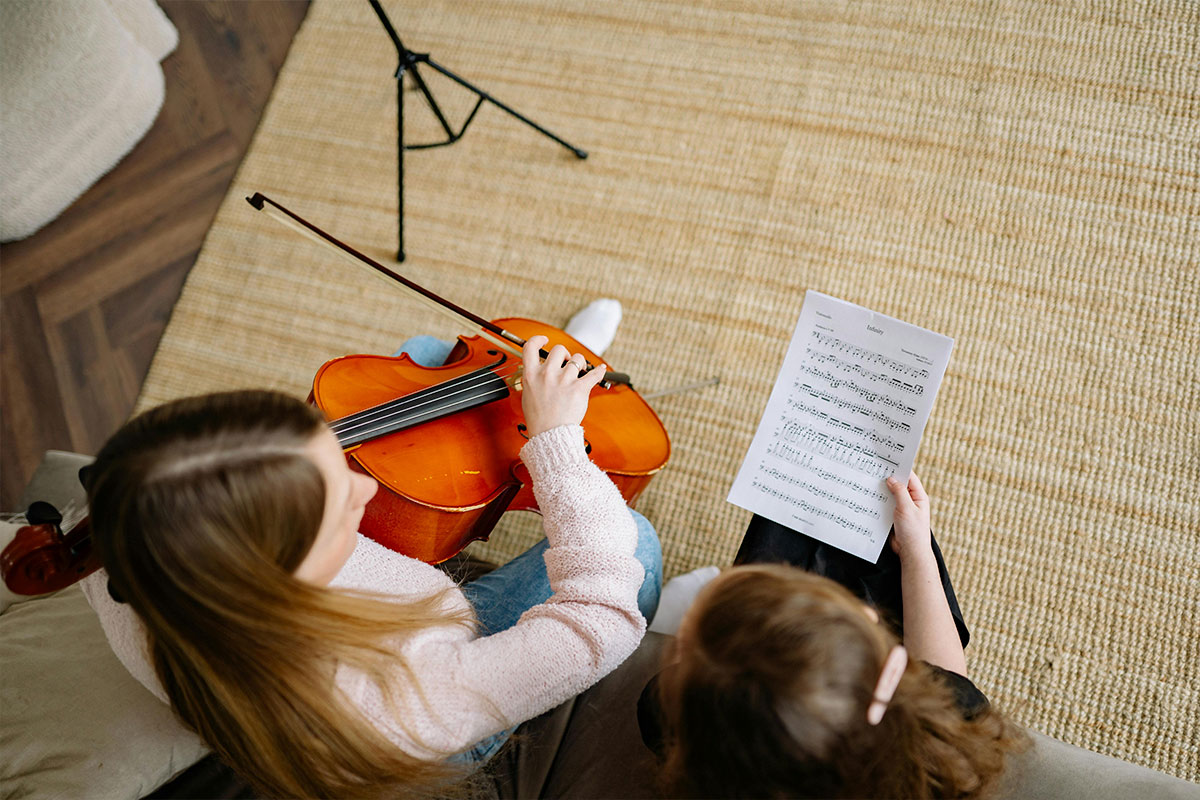The lights in the convention hall were about halfway up. The people attending the evangelization event had just returned from lunch, so they were ready to dance and move with all their might.
A group of people began to approach the side of the stage as soon as the music started. The band in charge of the music was ready, with great energy, enthusiasm, and a full heart.
The person scheduled to give the talk after lunch was highly regarded by the attendees, and anticipation grew with each song.
When the time was right, the rhythms of the songs began to change. From lively and energetic rhythms, they progressively slowed down until they reached what are popularly known as meditation songs.
And that’s where my cello came in.
Depending on each person’s preference, some people began walking to their seats, while others took their time, enjoying the moment. The common denominator of those who remained at the foot of the stage was that they gently rocked their bodies from side to side.
Because the cello is a bowed acoustic instrument, it is precisely in these songs that it can be appreciated in a special way. Sometimes I took on the melody, and other times I played harmony.
Although I was very focused on playing, I could sense that some people were still retreating to their places. The space near the stage was becoming increasingly clear.
As the space cleared, I managed to perceive a person who neither walked to his place nor moved gently from side to side like the others. He was standing, motionless, looking in the direction where I was playing; his gaze was deep and very direct. He held his left hand over his heart.
His gaze was so direct and so intense that I felt a little uncomfortable.
At the end of that moment, and after the musicians left the stage, he found me and said:
“You don’t know what you’ve done to me. You’ve taken my heart out, and I felt as if God was gently kneading it in his hands. When I began to listen to you, tears began to roll down my cheeks. I don’t know what you did, but I couldn’t move; I was completely paralyzed with love.
I just listened to him and thought:
“Wow…”
It’s true that God does what He wants and what we allow Him to do, but I still asked myself many times: what could have been so special for this person that he was “paralyzed with love”?
A few days later, we met again at a meeting. He told me about his experience again. Even several days later, his emotions were still intense and raw.
That experience was truly meaningful to him. And I kept wondering, what could have happened?
This is my theory:
It is said that the cello is the instrument that most resembles the human voice.
When each of us was conceived, the human voice was one of the first sounds we perceived. The first was probably the beating of our mother’s heart, and the second was her voice.
My imagination led me to think that this gentleman probably connected with some memory of love in his mother’s womb. Hearing someone who loved him greatly moved him deeply.
And you, have you ever felt moved when you hear someone who loves you? What has that been like for you?
For this gentleman, the sound of the cello and the love it evoked moved him so much that he didn’t mind strangers seeing him weep openly.
I still remember when my daughters were little, and I would talk to them on the phone when we weren’t together. Their little voices were so tender they melted my heart. And they, in turn, were overjoyed to hear me.
How do you imagine God when He listens to you?
If you know a loving God, will God be moved and melted when he hears you?
In Psalm 32, the psalmist tells us that the people should rejoice when they hear God, for the Lord is not far from his people.
Would you like to listen to God until you are moved?
Do you think God is moved when he hears you?
If the Spirit leads you, share with Jesus the Carpenter how you imagine God when he listens to you. And perhaps you will remember that God is never far from his people, nor from you.
Marisol
P.S. We can hear about God’s closeness in the psalm for the 30th Sunday in Ordinary Time, Year/Cycle C.




